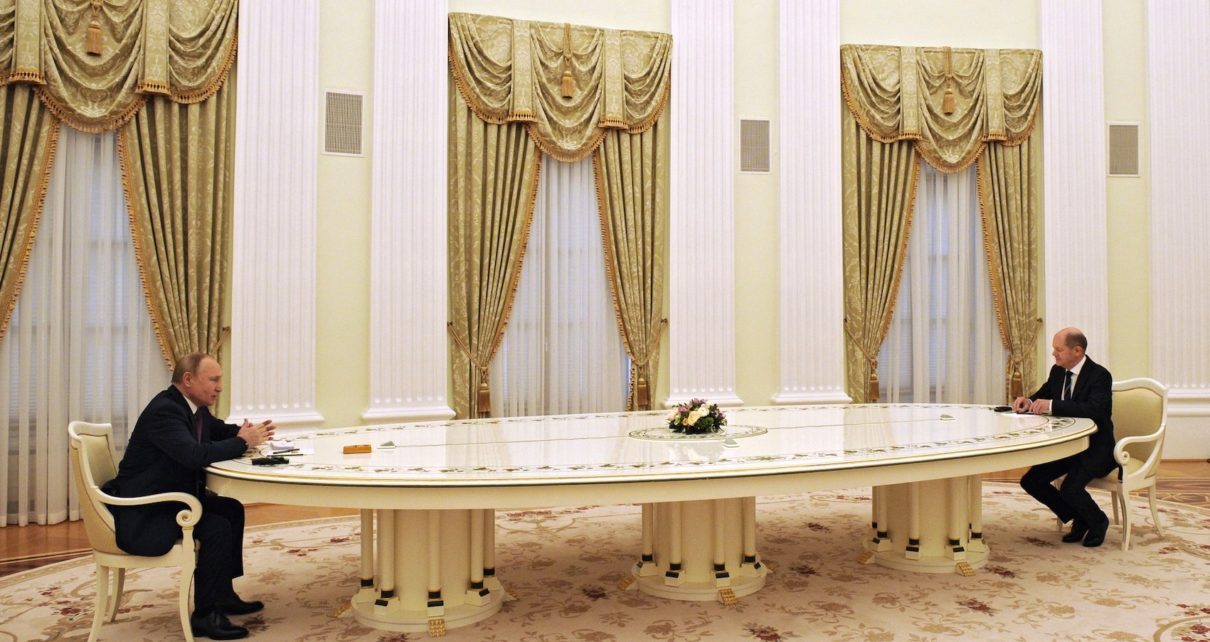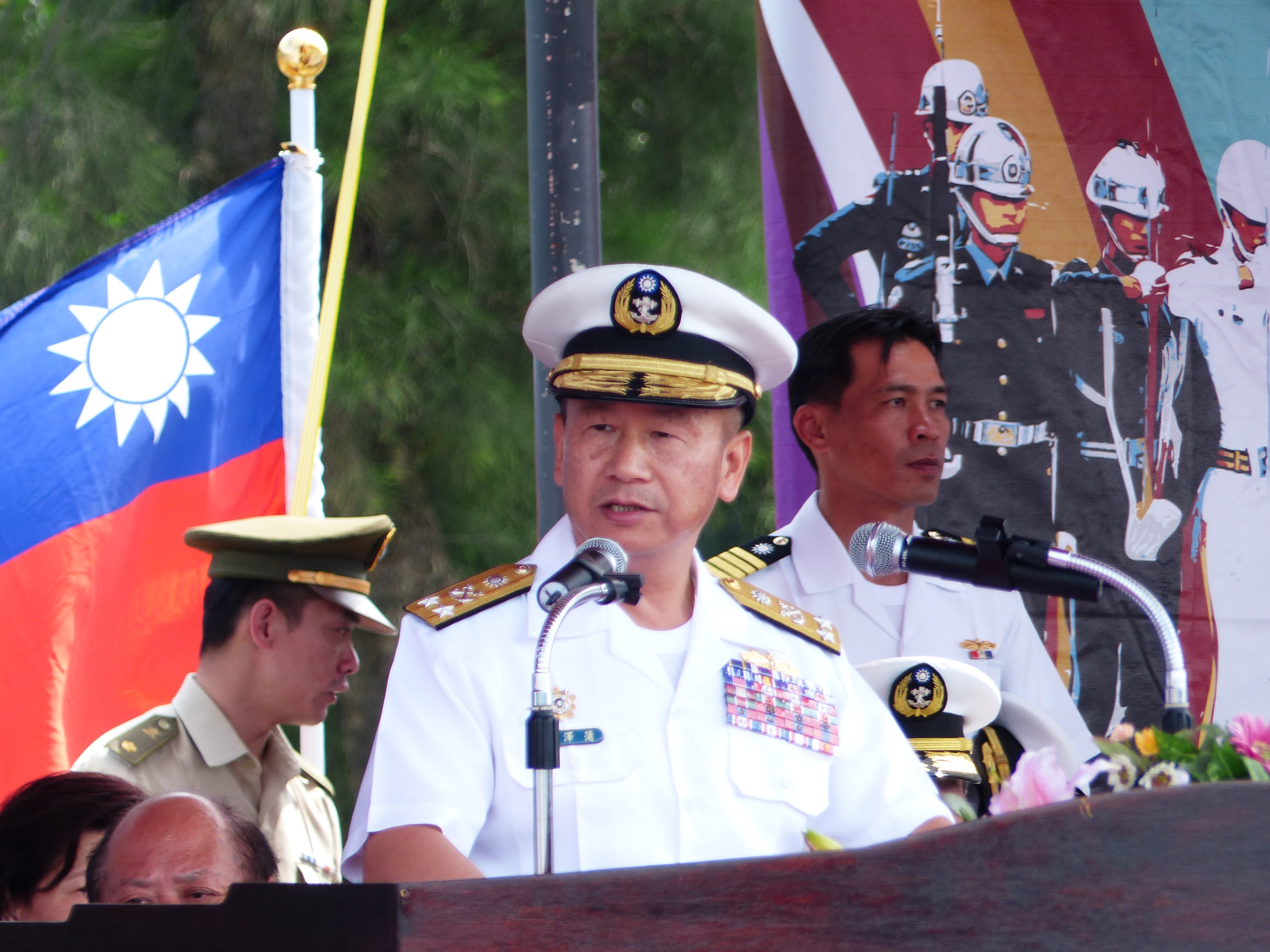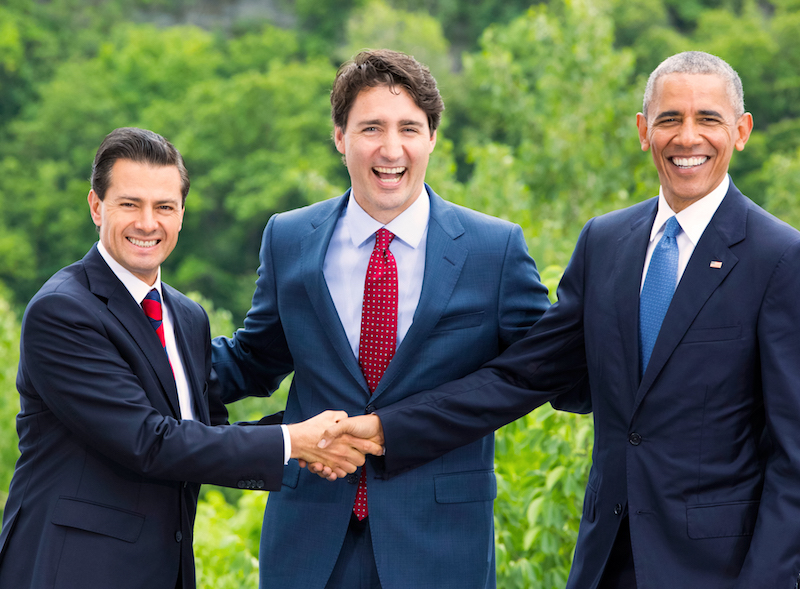For over fifty years, Germany hoped that a conciliatory approach predicated on close economic ties, and diplomatic and cultural rapproachement in its Russia policy – commonly known as Ostpolitik – would warm Russia to the West. Two Russian invasions of Ukraine and many sanctions later, it has become abundantly clear that Berlin’s orthodox policy towards Moscow has failed to produce the results it expected.
Germany’s Russia problem runs deeper than superficial debates regarding Berlin’s strategic autonomy, defence spending, or its approach to diplomatic and economic relations with its eastern “frenemy.” Its political elite has wilfully walked into the Ostpolitik cul-de-sac with Russia over the ongoing Ukraine conflict, due either to belief that such shibboleths are still relevant for our times, or as an excuse to hold their hands in a Merkel-Raute while Berlin’s allies solve its security problems for it.
Despite German pride in the “never again, never alone” pledge, the country’s perennial Russia policy paralysis and its tired old debates of acting on “new thinking” have once again reinforced its reputation as an unreliable ally across both sides of the Atlantic. Invocations of the Zeitenwende on the Bundestag floor defied all expectations of Berlin’s foreign, economic, and defence policy responses to the war in Ukraine. However, Germany remains unsettled on its place and role within Europe’s security architecture, and in regard to the form that any substantive pan-European pact such as the CSDP/European Strategic Compass will take.
Given its internecine history with Russia, Germany is naturally best positioned to be the West’s bridge to that Eastern power— and this need not change. But unless Berlin rapidly learns to speak “the language of power,” it can expect its attempts at overture or engagement to be laughed off by Moscow’s Silovik establishment. These are harsh lessons, being paid for in Ukrainian blood. While the United States is increasingly busy elsewhere, Germany is running out of time to turn the European Union (EU) into a bulwark against Russian aggression. The consequences of its failure to deter Russia’s imperialist ambitions in tandem with its EU partners are now being acutely felt, and Germany’s decades-spanning complacency holds no small share of the blame.
Berlin’s new Russia policy must therefore be underpinned by two pillars. First, it must forge a common and binding policy with Paris and Warsaw. This is indispensable if Germany wants the leverage required to bargain with Russia, and a necessary step to further European integration. Second, and more importantly, it must produce a relevant and binding commitment to the CSDP which incorporates specific force planning along the lines of the European Strategic Compass.
Structural Challenges:
In 2001, a youthful Vladimir Putin made the first and only address of a sitting Russian President in the Bundestag. His speech, pledging solidarity with the West against terrorism (in fluent German, no less), shocked and mesmerized lawmakers and pundits. These days, most Europeans – even Germans – are under no illusions as to Putin’s nefarious agenda. Despite promises that Germany will change with the times, or the consensus among the governing parties that something must be done, the Bundestag remains decisively split on Germany’s approach to Russia policy.
While the Greens and centre-right FDP are generally more enthusiastic for a re-evaluation of Germany’s conciliatory posture towards Russia, Chancellor Scholz’s centre-left SPD has refused to relinquish its signature Ostpolitik tradition. Although SPD leader Lars Klingel commented that “change through trade” as a concept has failed in the wake of Putin’s decision to invade Ukraine, there are still some among Germany’s Social Democrats who hold on to the obsolete belief that “sunny ways” can eventually bring Russia back to the negotiating table.
Unlike the USSR before it, Russia is no longer bound by the same precarious geopolitical squeeze that its predecessor faced in the 1970s and 1980s. Beijing and Moscow have since aligned their attempts to challenge the rules-based status quo that has long stymied their regional and global ambitions. The United States finds itself increasingly preoccupied with global responsibilities beyond Europe, notably within the Indo-Pacific theater, at the expense of its continental commitments. Unlike Gorbachev’s Soviet Union, Putin’s Russia has escaped the security dilemma caused by adversarial encirclement on all sides, and simply has no need to play along with Germany’s Ostpolitik niceties.
Prior plans for Germany to become a NATO anchor nation for smaller European militaries, in addition to a slew of joint procurement projects to modernize the Bundeswehr, are now meeting welcome additions such as the latest 100 billion Euro defence funding package and renewed ambitions to advance flagship materiel acquisition projects like FCAS. While Germany’s introduction of military reforms demonstrates that intent is stirring in the defence policy realm, it should be but one leg of Berlin’s Russia policy reconstitution.
What Is To Be Done?
Germany must come to a binding comprehensive agreement with France and Poland on European defence and Russia relations. It would signal to Moscow that the EU possesses the capacity to act as a cohesive body on foreign policy, while laying the foundations for further European integration. Berlin must lead on these negotiations with a sense of alacrity and an understanding that it may need to compromise on its conservative political red lines. Any such agreement would invariably encompass spiny, overlapping questions including sanctions solidarity, energy security, and future German military commitments to protect European interests. Though finding alternatives to Russian hydrocarbons would have to be a collaborative effort by the Weimar Triangle, the ball is decisively in Berlin’s court when it comes to defining the Bundeswehr’s international responsibilities.
To make a common European defence policy work, the Bundestag will have to relent to pressure and make more external military commitments—including those far from European soil. Though the Elysee Palace is undoubtedly pleased that Germany decided to keep its troops in Mali and Niger for another year, France is unlikely to stomach further German reluctance about out-of-area operations, as it cannot sustain the tempo of its presence on Europe’s periphery without Germany’s help. Nor would Poland be willing to tolerate Germany’s sheepish attitude on backing its Eastern European partners when the Polish prime minister proposed that Europe should lock its shields with Ukraine. Given Berlin’s tendency to pull its “culture of restraint” ripcord whenever its allies urge actions that encroach on its domestic political constraints, or when its economic interests are at stake, there is no guarantee that consensus can be reached between Germany and its allies.
Despite its more recent willingness to step up to its European security commitments, Germany has a notorious track record of laggard behaviour on defence modernization, and has perennially refused to unite its approach with France in order to engage Russia. This has cost Berlin dearly in political capital, and it is only in these times of crisis that German policymakers have taken an interest in serious strategic discussions with its allies. Some stirring has occurred at the NATO and EU level, and Germany has shown an interest in phasing out Russian oil by the end of 2022. This shows that incremental progress can be made, and signals some much-needed solidarity with its other European partners. Germany has once again realized that even among trusted partners, foreign relations rely on an interest-based “give-and-take.”
Retooling Russian relations is an expansive effort that will need to be undertaken in phases, especially given the rifts that still exist between Berlin, Paris, and Warsaw. However, so long as a binding agreement on European defence gains traction—in the form of an institutionalized CSDP or otherwise—a common policy on Russia would not be far behind. As any seasoned diplomat knows, the most difficult aspect of formulating any agreement is in first establishing a cooperative and trusting dynamic. Europe’s future defence and collective Russia policy framework will not be exempt from this truism.
Cover Image: Chancellor Olaf Scholz of Germany meets with the president of Russia, Vladimir Putin, just days before the Russian invasion of Ukraine, February 15, 2022. The Presidential Executive Office of Russia www.kremlin.ru. Wikipedia Commons. Licensed Under CC 4.0.
Disclaimer: Any views or opinions expressed in articles are solely those of the authors and do not necessarily represent the views of the NATO Association of Canada.




